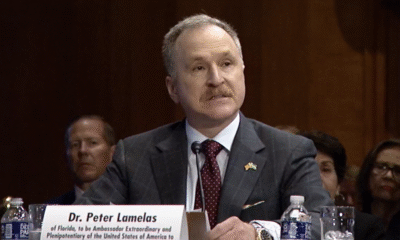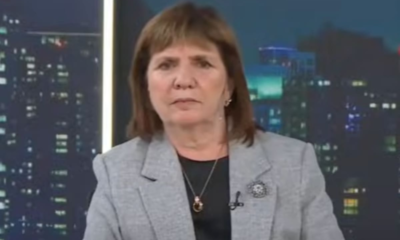INTERNACIONAL
Upending US birthright citizenship would have drastic negative impact, defenders warn

The Supreme Court heard a case this month centered on President Donald Trump’s executive order seeking to end so-called birthright citizenship, in one of the most closely watched and potentially impactful cases heard by the court in recent years.
Though the case itself was used largely as a means of challenging lower court powers to issue so-called universal or nationwide injunctions, justices on the high court did inquire about the merits of the order itself, «Protecting the Meaning and Value of American Citizenship,» which Trump signed on the first day of his second White House term.
The order, which was slated to take force Feb. 20, directed all U.S. agencies to stop issuing citizenship documents to children born to illegal immigrants or children born to mothers living in the country on a temporary visa, if the father is not a permanent resident or U.S. citizen.
Despite the Supreme Court’s focus on universal injunctions in hearing the case, deep and unyielding concerns persist about Trump’s attempt to undo more than 100 years of legal precedent.
JUDGES V TRUMP: HERE ARE THE KEY COURT BATTLES HALTING THE WHITE HOUSE AGENDA
U.S. President Donald Trump shakes hands with U.S. Supreme Court Chief Justice John Roberts (R) as Melania Trump, Donald Trump Jr. and Ivanka Trump look on after being sworn in during inauguration ceremonies in the Rotunda of the U.S. Capitol on January 20, 2025, in Washington, D.C. Chip Somodevilla/Pool via Reuters/File Photo (Reuters)
The ACLU included in its lawsuit the story of one couple from Indonesia but living in New Hampshire whom they said would be affected by the order.
«They arrived in 2023, applied for asylum, and their application awaits review,» ACLU attorneys said of the couple. «The mom-to-be is in her third trimester.
«Under this executive order, their baby would be considered an undocumented noncitizen and could be denied basic health care and nutrition, putting the newborn at grave risk at such a vulnerable stage of life,» they added.
And such problems would persist throughout their lives, lawyers for the group noted. These persons would not be able to obtain necessary identification, such as drivers’ licenses, and would not be able to vote, hold some jobs or serve on juries.
Though Trump had spoken in detail in his first term and on the campaign trail about wanting to end birthright citizenship, his executive order sent shockwaves through the nation. It was met by a wave of lawsuits from Democrat-led states and immigrants’ rights groups.
WHO IS JAMES BOASBERG, THE US JUDGE AT THE CENTER OF TRUMP’S DEPORTATION EFFORTS?
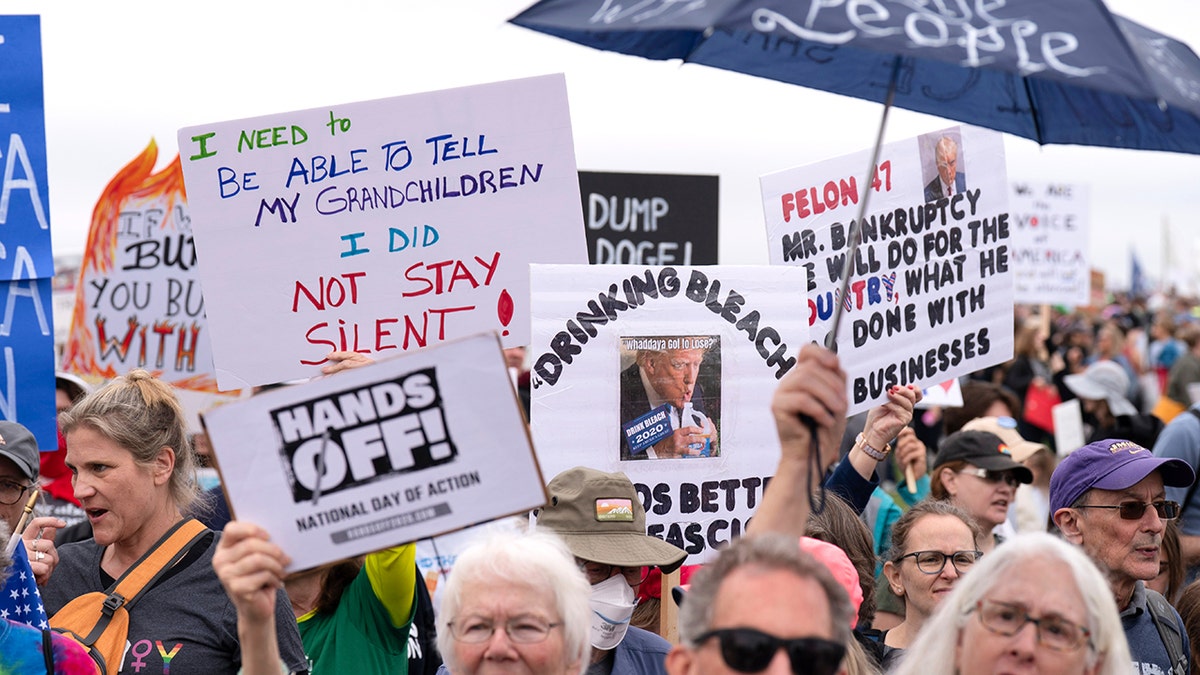
Demonstrators hold up signs during a «Hands Off!» protest against President Donald Trump at the Washington Monument in Washington, Saturday, April 5, 2025. (AP Photo/Jose Luis Magana)
One lawsuit, brought by 18 Democratic attorneys general, warned that ending birthright citizenship would strip hundreds of thousands of U.S.-born children of their citizenship as the result of a circumstance completely outside a child’s control.
Statistics also bear this out. Roughly 150,000 children are born annually in the U.S. to parents of noncitizens. If the order were to take force as Trump envisioned, experts warned the impact would be catastrophic.
»President Trump’s attempt to unilaterally end birthright citizenship is a flagrant violation of our Constitution,» New Jersey Attorney General Matthew Platkin, who joined 17 other Democrat-led states in suing to block the order, said earlier this year.
TRUMP FACES ANOTHER DEPORTATION SETBACK WITH 4TH CIRCUIT APPEALS COURT
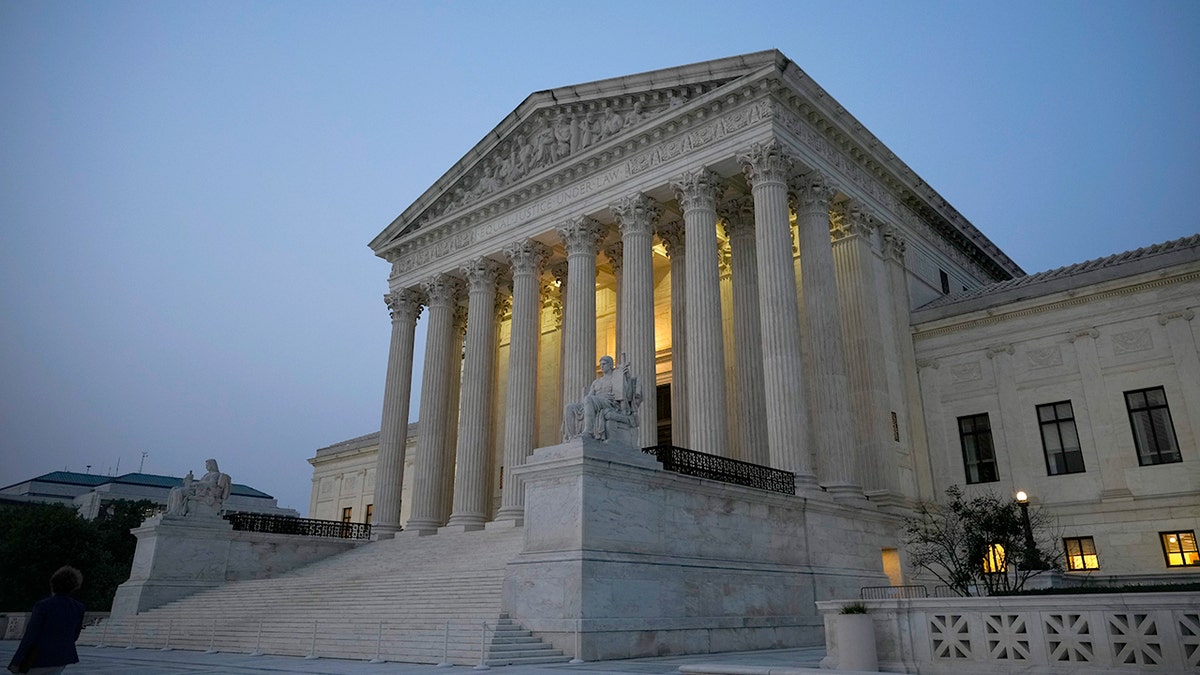
The U.S. Supreme Court is at the center of fresh debate over the interpretation of a core clause of the Fourteenth Amendment. (Drew Angerer/Getty Images)
«For more than 150 years, our country has followed the same basic rule: Babies who are born in this country are American citizens,» Platkin added.
CLICK HERE TO GET THE FOX NEWS APP
More than 22 U.S. states and immigrants’ rights groups sued the Trump administration to block the change to birthright citizenship prior to the Supreme Court’s decision to take up the case, arguing in court filings that the executive order is both unconstitutional and «unprecedented.»
To date, no court has sided with the Trump administration in upholding the executive order.
Donald Trump,Supreme Court,Immigration,Federal Courts,Judiciary
INTERNACIONAL
La feroz política migratoria de Donald Trump deja a cientos de migrantes varados en Ciudad de México
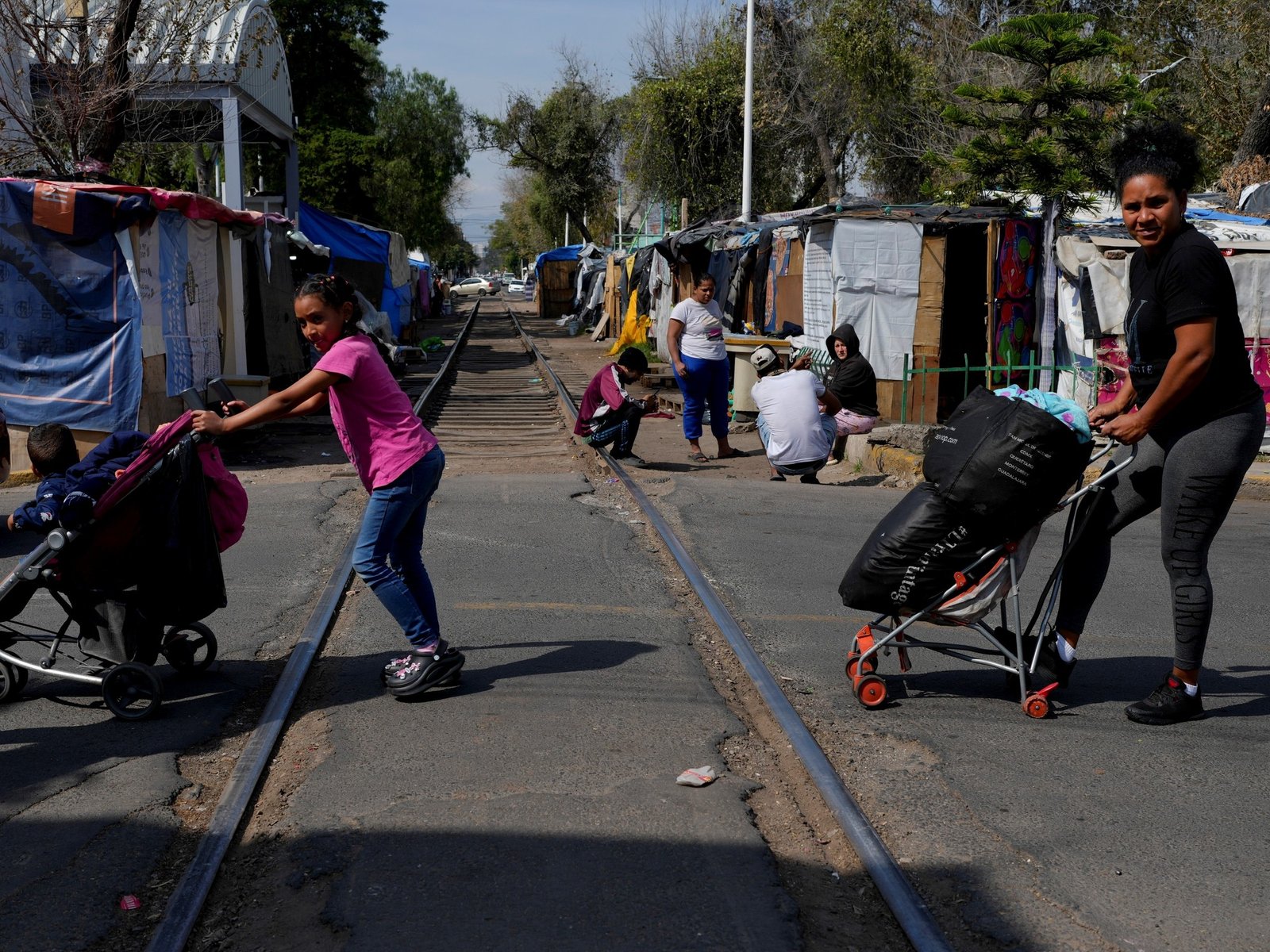
La Ciudad de México se ha convertido en un punto crítico para cientos de migrantes, que permanecen varados ante la falta de documentos y entre el miedo y la desconfianza hacia las instituciones, agravando la crisis migratoria en la capital mexicana.
El llamado «efecto frontera», que antes se concentraba en ciudades fronterizas como Tijuana (norte) o Tapachula (sur), se ha instalado en la capital del país, ante las nuevas restricciones migratorias en EE.UU. y desde el regreso del presidente Donald Trump a la Casa Blanca el 20 de enero.
Tania Rodríguez Zafra, directora de la organización civil Ayuda en Acción México, explicó a EFE que en los últimos seis meses ha cambiado la dirección y concentración del flujo migratorio hacia Estados Unidos, especialmente debido al fin de las citas CBP-One para solicitar asilo en ese país y el aumento de deportaciones.
Antes, muchas personas llegaban directamente a las fronteras norte o sur, buscando cruzar o iniciar trámites, pero ahora, las nuevas reglas han empujado a las personas migrantes a detenerse en el centro del país, expuso Rodríguez Zafra.
En México, se reciben entre 500 y 800 solicitudes de asilo cada día, según datos de la Comisión Mexicana de Refugiados (Comar), obtenidos por Ayuda en Acción.
«Entonces decimos: ¿Dónde quedan todos? Si las fronteras están casi desiertas, pues todos se están asentando en Ciudad de México, esperando una oportunidad de que se puedan abrir otra vez las fronteras de Estados Unidos», apuntó Rodríguez.
Un informe de Ayuda en Acción revela que el 44% de 351 personas migrantes encuestadas en la capital, principalmente provenientes de Venezuela, Cuba y Centroamérica, no pueden avanzar ni establecerse, debido a barreras legales, amenazas de deportación y desconfianza institucional.
Entre los testimonios de «aspirantes estructuralmente bloqueados» recogidos en el informe, está el del venezolano Luis Miguel, quien sobrevive con un empleo en una fábrica, pero está «desilusionado» con la calidad de vida.
«Si la página vuelve a abrirse, me voy», afirma Luis Miguel.
Ante la creciente inmovilidad migrante en la capital, el gobierno de Ciudad de México ha puesto en marcha un plan para habilitar albergues para personas en movilidad, lo que ha desatado protestas vecinales en zonas como Peralvillo y Azcapotzalco, donde el principal reclamo ha sido la falta de planeación y consulta previa.
En el barrio de Peralvillo, el descontento creció tras el cierre de un inmueble que albergaba un hospital y la Escuela Libre de Homeopatía de México, donde se atendía a vecinos de colonias cercanas como Tepito, Morelos, Tlatelolco y Guerrero, muchos de ellos comerciantes sin seguridad social e incluso personas migrantes.
Isis María Infante, médica y docente de la escuela, dijo a EFE que su molestia no es en contra de la población migrante, quienes han sido «parte de los beneficiarios de esta institución», sino el hecho de que el gobierno «utilice» a las personas en movilidad como un «escudo» para justificar lo que consideran una «expropiación» del predio, acusando de «xenofobia» a quienes se oponen.
«Nosotros como mexicanos estamos sufriendo una situación terrible en Estados Unidos. No tiene absolutamente nada que ver (con xenofobia). Nosotros aquí estamos luchando por nuestra escuela que le da atención a comunidades que están en una situación de necesidad extrema», afirmó Infante, quien labora desde hace tres años en la institución fundada en 1912.
Como alternativa a los albergues, Ayuda en Acción apuesta por atender la «problemática estructural» de la movilidad, por lo que a finales de 2024 abrió la primera casa de transición en la capital, enfocada en mujeres y población LGTBI, que reciben un alojamiento temporal y apoyo para regularización de documentos, empleo y vivienda, pues «hay gente que quiere solamente una oportunidad», apuntó Rodríguez Zafra.
«Las personas que realmente opten por tener una vida digna y una estabilidad entran al programa y las que no, pues seguirán esperando a que abra Estados Unidos. Pero nosotros ( ) creemos que por lo menos este año no se van a abrir las fronteras», advirtió la experta.
INTERNACIONAL
‘Lawless and insane’: Trump admin readies for fight after judges block Abrego Garcia removal for now
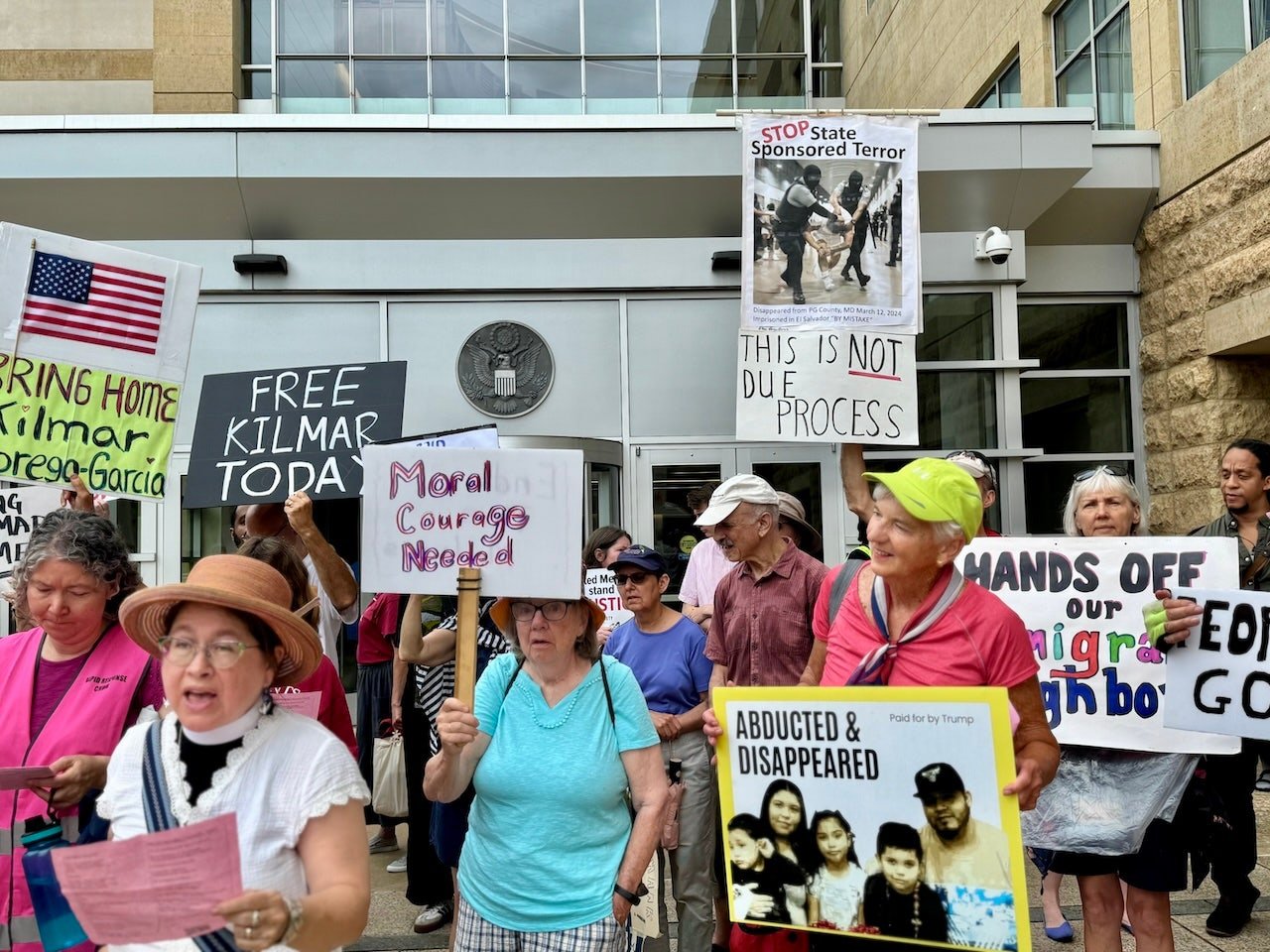
NEWYou can now listen to Fox News articles!
A trio of judges slowed the Trump administration’s effort Wednesday to immediately deport Salvadorian migrant Kilmar Abrego Garcia for a second time, in a series of back-to-back court orders that were praised by Abrego’s attorneys — but had Trump officials posturing for a fight.
The orders came in a span of 90 minutes from the U.S. districts of Tennessee and Maryland and halted, for now, the Trump administration’s stated plans to have Immigration and Customs Enforcement (ICE) arrest Abrego Garcia and immediately begin removal proceedings to deport him to a third country, such as Mexico or South Sudan. Justice Department officials acknowledged that plan in court earlier this month, telling a federal judge in Maryland that the handoff from U.S. marshals to ICE officials would likely take place outside the federal prison where Abrego Garcia is currently being held.
Those fears were bolstered further after senior Trump administration officials took to social media Wednesday to rail against the string of court rulings. Department of Homeland Security (DHS) Assistant Secretary Tricia McLaughlin vowed on X Wednesday that Abrego Garcia «will never walk America’s streets again.»
«The fact this unhinged judge is trying to tell ICE they can’t arrest an MS-13 gang member, indicted by a grand jury for human trafficking, and subject to immigration arrest under federal law is LAWLESS AND INSANE,» she said.
‘WOEFULLY INSUFFICIENT’: US JUDGE REAMS TRUMP ADMIN FOR DAYS-LATE DEPORTATION INFO
President Donald Trump, accompanied by Pam Bondi, speaks before Bondi is sworn in as U.S. Attorney General in the Oval Office at the White House. (Andrew Harnik/Getty Images)
The remarks prompted fresh concerns from immigration advocates, as well as lawyers for Abrego Garcia and his family.
«We have heightened, ongoing concerns about the Trump administration’s compliance with any and all those involved» in the case, Chris Newman, an attorney who represents Abrego Garcia’s family, told Fox News Digital in an interview Wednesday after the orders.
His concerns came despite the string of near-term victories for Abrego Garcia, aimed at affording him due process and access to counsel ahead of his removal.
In Nashville, U.S. District Judge Waverly Crenshaw on Wednesday ordered Abrego Garcia’s release from criminal custody pending trial, writing in a 37-page ruling that the federal government «fails to provide any evidence that there is something in Abrego’s history, or his exhibited characteristics, that warrants detention.»
He also poured cold water on the dozens of allegations made by Trump officials, including by DHS Secretary Kristi Noem in Nashville last week, that Abrego Garcia is an MS-13 gang member.
«Based on the record before it, for the court to find that Abrego is member of or in affiliation with MS13, it would have to make so many inferences from the government’s proffered evidence in its favor that such conclusion would border on fanciful,» he said.
SUPREME COURT FREEZES ORDER TO RETURN MAN FROM EL SALVADOR PRISON

Department of Homeland Security Secretary Kristi Noem speaks during a tour of the Terrorist Confinement Center on March 26, 2025 in Tecoluca, El Salvador. (Alex Brandon-Pool/Getty Images)
U.S. Magistrate Judge Barbara Holmes, tasked with implementing that order, stayed Abrego Garcia’s release from criminal detention for 30 days, a request made by his attorneys earlier this week.
Two minutes after Judge Crenshaw’s ruling, U.S. District Judge Paula Xinis, the judge overseeing his civil case in Maryland, issued an emergency order blocking the administration from immediately taking Abrego Garcia into ICE custody, citing concerns he would otherwise be removed immediately and without due process.
She also ordered that Abrego Garcia be sent to the ICE Order of Supervision at the Baltimore Field Office, and that the Trump administration notify Abrego Garcia and his counsel of any plans to remove him to a third country 72 hours in advance, to ensure access to counsel and to challenge the country of removal.
Lawyers for Abrego Garcia praised the court orders Wednesday, though they stressed there is a long road ahead — and one that remains fraught with uncertainty.
«These rulings are a powerful rebuke of the government’s lawless conduct and a critical safeguard for Kilmar’s due process rights,» Simon Sandoval-Moshenberg, one of Abrego Garcia’s attorneys, said Wednesday.
However, Abrego Garcia’s case has been the center of a monthslong legal maelstrom and is one that critics argue has allowed the Trump administration to test its mettle on immigration enforcement and its ability to slow-walk or evade compliance with federal courts.
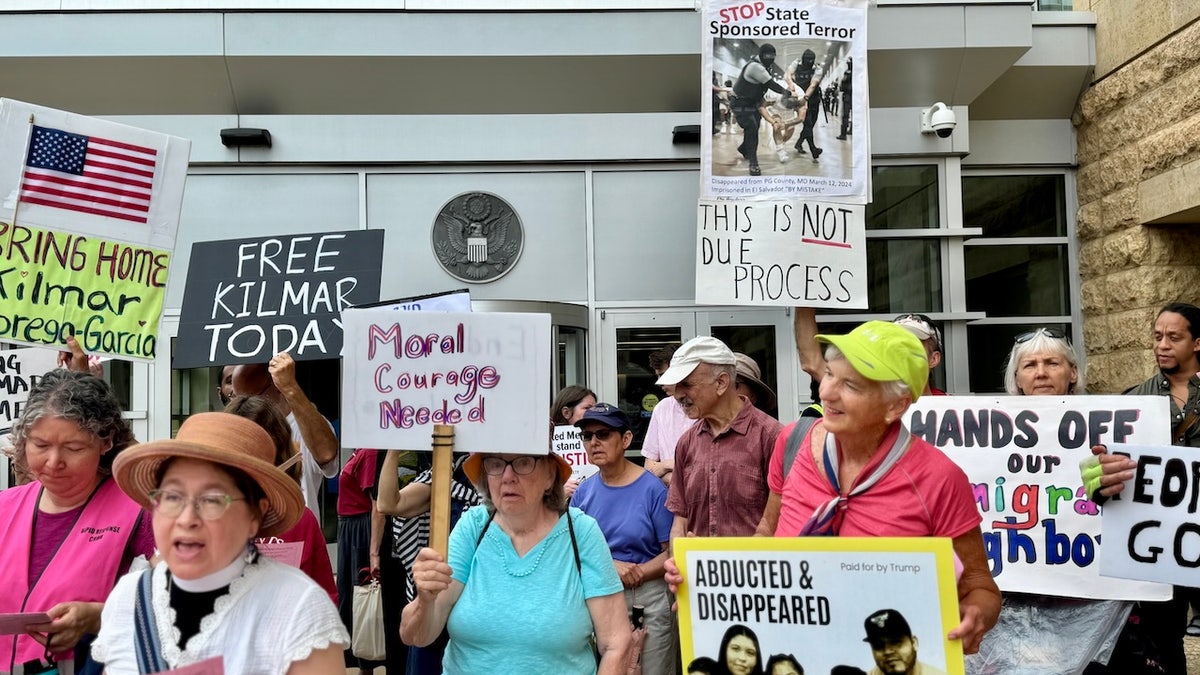
Demonstrators gather outside the U.S. District Court in Greenbelt, Maryland, to protest the Trump administration’s deportation of Kilmar Abrego Garcia, who was sent to El Salvador in March in what administration officials said was an administrative error. (Breanne Deppisch/Fox News Digital)
Whether the administration will appeal the orders Wednesday, or otherwise honor them, remains to be seen.
The Supreme Court has in recent months sided with the Trump administration on a number of key court cases, as well as a flurry of emergency orders, suggesting they could move for emergency intervention at that level.
Though justices on the high court ordered unanimously that the Trump administration facilitate Abrego Garcia’s return to the U.S. earlier from El Salvador this year, it’s unclear whether they would intervene at this point to head off the administration’s planned removal. Any challenge to the Tennessee orders, including the 30-day stay, would also be heard by the conservative-majority U.S. Court of Appeals for the Sixth Circuit, which could block the lower court orders from taking force.
Others noted the Trump administration’s posture in recent immigration cases, including in the wake of their removal of hundreds of migrants to El Salvador’s CECOT prison earlier this year.
Critics argue the Trump administration has been slow, or downright recalcitrant, to comply with court orders — and their actions prompted two judges in Washington, D.C., and Maryland to threaten potential contempt proceedings earlier this year. U.S. District Judge James Boasberg’s April ruling, which found there was probable cause to hold the administration in contempt for violating his order blocking them from using a wartime law to deport migrants to CECOT, was stayed by a federal appeals court.
On the other hand, Trump officials have railed against the «activist» judges, who they argue have blocked their agenda and overstepped their court powers.
Lawyers for Abrego Garcia and his family say they are clear-eyed about the administration and expected attempts to challenge the orders, even while the details of the efforts remain unclear.
CLICK HERE TO GET THE FOX NEWS APP
«It’s now a matter of public record that their posture since the beginning is to say, ‘F— you’ to the courts,» Newman, the lawyer for Abrego Garcia’s family, said in an interview.
«So, to say that we are being vigilant about potential bad faith efforts by the Trump administration would be an understatement,» he said.
INTERNACIONAL
Uruguayos con becas en Francia piden una solución por los pasaportes: “Nuestro sueños se ven amenazados”
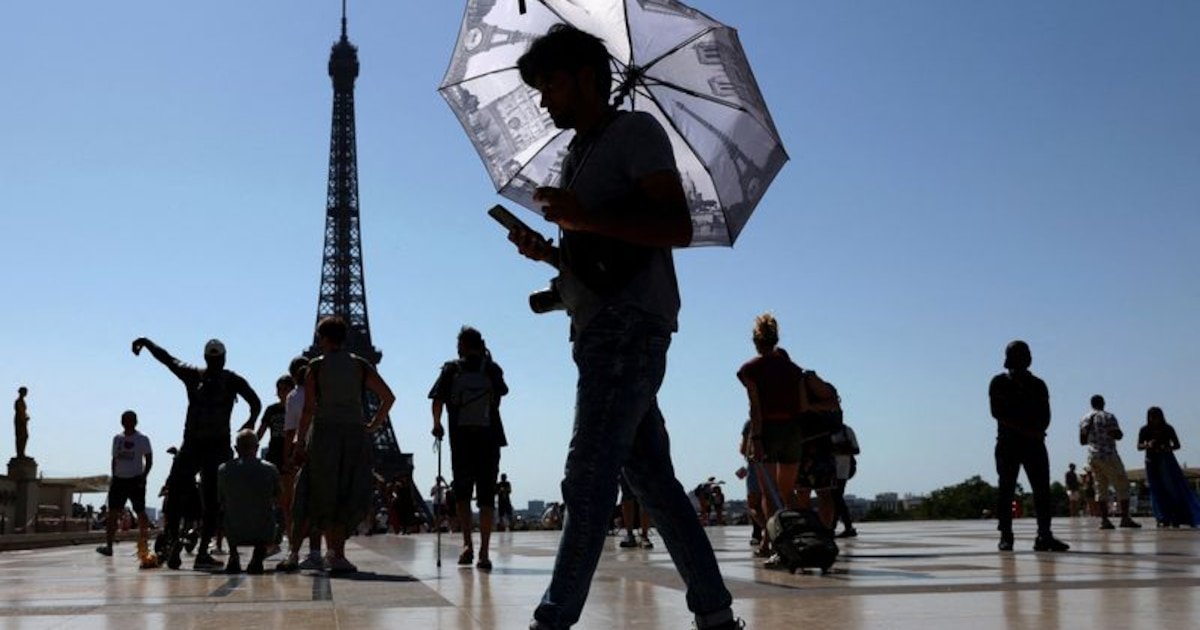
La nueva versión del pasaporte uruguayo no incluye el lugar de nacimiento y esto ha generado un problema diplomático para el país. Alemania, Francia y Japón han advertido por esta omisión en el documento uruguayo y anunciaron –a diferente escala– restricciones para sus ingresos. El gobierno uruguayo busca bajarle el perfil a este asunto, al tiempo que estudiantes becados piden una solución “urgente” a este problema.
Entre los principales cambios del nuevo pasaporte se encuentra la modificación del título “Nacionalidad” por la denominación “Nacionalidad/Ciudadanía”, consignándole el código “URY” tanto a los ciudadanos naturales como a los legales. Esta medida permite que haya una coincidencia entre el país que emite el documento y la ciudadanía de su titular.
La medida de esos dos estados europeos tiene matices. En el caso de Alemania, el nuevo pasaporte uruguayo no tiene validez ni siquiera para estancias cortas. En el caso de Francia, la traba es para visas por estadías mayores a 90 días.

Esto ha perjudicado a un grupo de estudiantes becados. En una carta dirigida al noticiero Telemundo de Canal 12, aseguran que “tras años de esfuerzo” obtuvieron “oportunidades académicas excepcionales en Francia”. “Entre nosotros hay admitidos en instituciones de renombre como el Institut Polytechnique de París, la Sorbonne, Sciences Po, Rennes School of Business y receptores de la prestigiosa beca Eiffel, una de las más competitivas del mundo”, expresó.
La carta está firmada por siete estudiantes, pero es compartida por cerca de una decena, ya que algunos prefieren no revelar su identidad. Los firmantes son: Candela Sánchez, Federico Méndez, Kevin Solano, Salvador Martínez, Santiago Martínez, Stephanie Ravaschio y Valentina Perchman.
El caso de Solano fue uno de los que se había hecho público hace algunos días: se trata del joven que fue admitido para estudiar en La Sorbonne pero su visa fue rechazada por el nuevo pasaporte.

En la carta firmada por los estudiantes indican que tienen el sueño de desarrollarse académica y profesionalmente en estas instituciones reconocidas a nivel mundial, además de generar vínculos internacionales para luego “aplicar ese conocimiento en beneficio del país”.
“Nuestra intención es clara: formarnos con los mejores para luego aportar lo aprendido a Uruguay. Sin embargo, esos sueños hoy se ven amenazados”, expresaron en la misiva.
“No podemos tramitar nuestras visas. Algunos de nosotros ya deberíamos estar allá; otros viajamos en los primeros días de agosto. Cada día que pasa se reducen nuestras chances de llegar a tiempo para el inicio de clases y cumplir con los requisitos de nuestras becas”, advierten.

Los estudiantes reconocieron que el gobierno está trabajando de manera activa para solucionar este tema. Sin embargo, la respuesta que les dan en la embajada francesa es que no pueden saber cuánto tiempo va a demorar este trámite.
“Solicitamos encarecidamente a las autoridades que, paralelamente a las gestiones ya iniciadas, exploren soluciones transitorias urgentes. Entre ellas, consideramos viables medidas como la impresión de pasaportes con el diseño anterior o la posibilidad de que, en coordinación con la embajada francesa, se acepte una combinación del nuevo pasaporte con una partida de nacimiento apostillada u otra documentación que permita identificar fehacientemente nuestra nacionalidad”, sugieren como alternativa.
Los estudiantes becados insistieron en que necesitan una “solución ya”.

El embajador francés ratificó esta semana la decisión. Entrevistado en el diario El País este martes, Jean-Paul Seytre detalló que se le pidió al gobierno los nuevos ejemplares, los cuales fueron enviados a las autoridades francesas, que los están analizando.“En realidad, nunca vi pasaportes que no incluyan el lugar de nacimiento. En todo caso, el estudio es una competencia del Ministerio del Interior”, expresó el diplomático.
El diplomático aclaró que, hasta ahora, no son muchos los afectados por este problema, una afirmación que expresó para “apaciguar el debate”.
Europe,Tourism / Travel,Weather Markets / Weather,PARIS

 POLITICA3 días ago
POLITICA3 días ago🗳️ El chamuyo de las elecciones en la Provincia: se postulan, pero no a asumen

 POLITICA3 días ago
POLITICA3 días agoFuerte malestar en la CGT por la ausencia de gremialistas en las listas bonaerenses del peronismo

 ECONOMIA2 días ago
ECONOMIA2 días agoEl consumo en Argentina crece 4% en junio, ante menor inflación y más crédito



